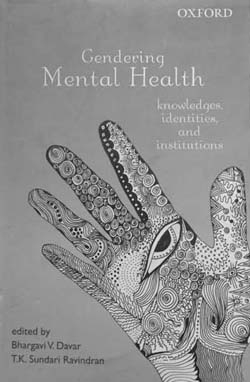As is reflected in the title, this is a fascinating anthology that looks critically at knowledges, identities and institutions related to women’s mental health. Each of these are very lofty concepts and constructions in themselves that find elaborate deconstruction and articulation in the nine essays that comprise this book. The field of Mental Health in contemporary times has become truly multidisciplinary in nature and draws extensively from the frameworks of Philosophy, Sociology, Psychology, Psychiatry, Literature, Law, Human Rights and Gender Studies. This enables new conceptualizations and perspectives to emerge. Likewise, recognizing the importance of pluralism, multiplicity and diverse realities flowing from varied cultures and contexts, in understanding the subjective worlds and experiences of individuals, who are emotionally disturbed, victims of trauma, suffering or afflicted with disease, often labelled as being of ‘unsound mind’, is also essential. All the nine essayists recognize these dimensions and raise questions about the existing systems, beliefs and practices which perpetuate the use of labels, stigma and mechanical rendering of therapeutic services and justice to women. They assertively make a case for sensitive and empathetic understanding of issues in which women’s own voices find expression and due recognition and credence is given to their lived experiences and realities. In a nation where ‘inclusion’, ‘gender justice’ ,‘equality’ and ‘human rights’ are constitutional promises, a book of this kind serves the very meaningful purpose of drawing attention to the limitations and problems that flow from the very exclusionary, archaic and narrow colonial attitudes that mark both institutional practices and discourse on women’s mental health. The tendency to focus on illness and madness instead of wellness and women’s potential for change, that has been a socio-historical reality, continues to prevail in public views, medical care, media projections, mental health policies and in the legal system as well.

A Multidisciplinary Approach
Namita Ranganathan
GENDERING MENTAL HEALTH: KNOWLEDGES, IDENTITIES AND INSTITUTIONS by Edited by Bhargavi V. Davar and T.K. Sundari Ravindran Oxford University Press, New Delhi, 2015, 236 pp., 850.00
July 2016, volume 40, No 7
